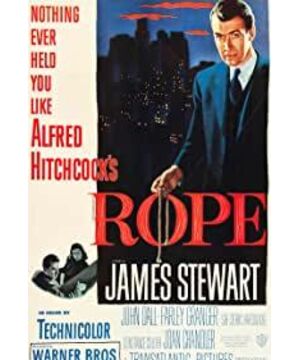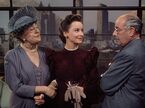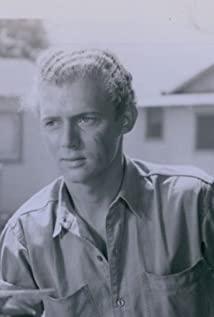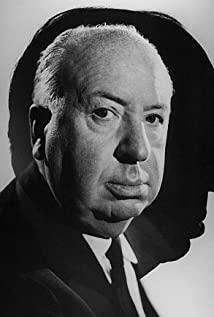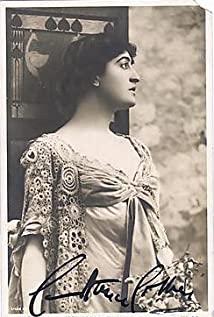Generally speaking, the protagonists of suspense and reasoning films are usually detectives, looking for clues to obtain physical evidence to solve the case. People like me who are not online can often only feel the excitement of the film when the truth is revealed, similar to the previous big hits. "Sherlock", in the end, I only remembered the high-functioning antisocial personality of Cun Fu, and completely forgot which cases were solved.
But Hitchcock is very different. He knows what the audience wants to see. In this film, he knows the murderer and the deceased from the beginning, and the suspense becomes whether everyone will find the body hidden in the living room table, and at the same time calm down. The confident Brandon and the sensitive and irritable Philip are in stark contrast. As the guests gradually enter the venue, the focus of the perspective has completely changed to the two murderers. They are afraid of Philip's exposure, and hope that Brandon can control the scene. It is a very strange feeling. Logically speaking, catching the real murderer is the first priority, and it is in line with the values of truth, goodness and beauty~ But I silently prayed in my heart: "Philip, don't do it, calm down, Brandon. Brandon, come and save me!"
I saw an interview with Hitchcock before, about how he set up suspense, there are three people on a bench, there is a bomb under the bench, it will detonate in five minutes, how to write a script. The first method: the three people in the chair are chatting, the bomb explodes after five minutes, and the audience gets the emotional experience when the bomb explodes; the second method: first tell the audience that there is a bomb under the chair, the people in the chair are chatting, five Minutes later, the bomb exploded, and the audience had an emotional experience at the beginning, but the five-minute wait would gradually wear off this feeling; Hitchcock's method was: first tell the audience that there was a bomb under the chair, and the three people in the chair chatted Two minutes later, one person suggested that it's almost time to go, while the other person said that he wanted to chat for another two minutes before leaving.
The twists and turns of the suspense setting, at first they were afraid that they would be killed by the bomb, and when they wanted to leave after two minutes, they were a little relieved, but another person proposed to chat for a while, which made the development of the story confusing again. At that time, the audience has completely substituted for the role of the plot. No matter whether the bomb exploded in the end or whether the character escaped the disaster, the audience has been completely immersed in these five minutes.
The same is true in this film. Everyone is concerned about David's safety from time to time, and they are constantly approaching the hiding place of the deceased. Even if the audience will basically acquiesce that the truth will be revealed sooner or later and the real culprit will be caught sooner or later, they will still be led by the director. This is Hitchcock's genius, so Hitchcock is probably a "scumbag" (laughs), always playing with the emotions of the audience.
But what I don't like is that there is always a summary of the theme or sublimation of the theme like a college entrance examination composition at the end, which feels a little procrastinated. But maybe it's a habit or characteristic of that era, or maybe I'm losing patience in today's fast-paced environment.
View more about Rope reviews


